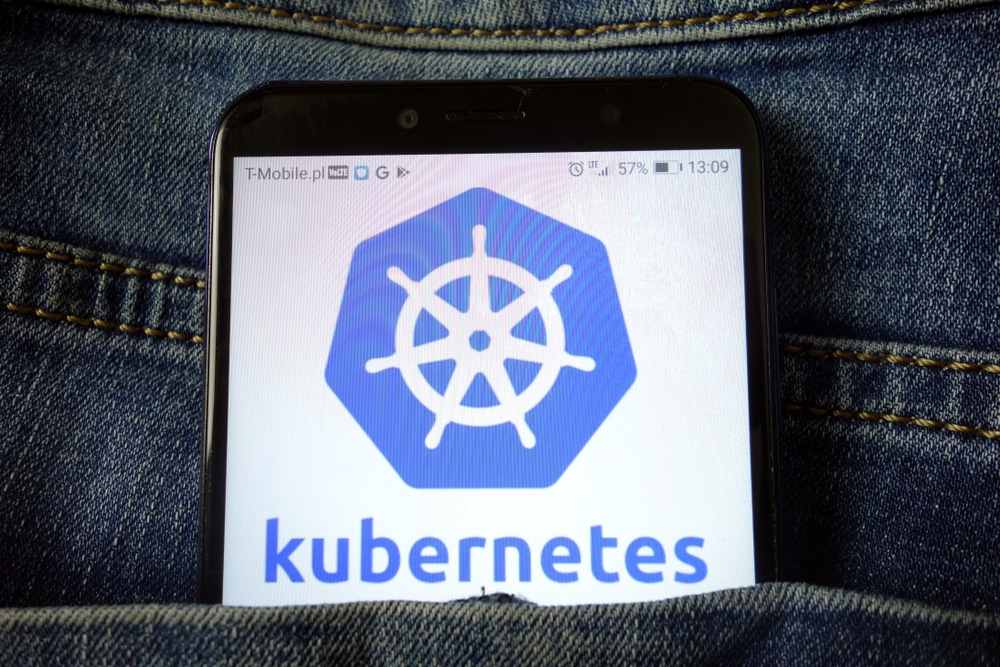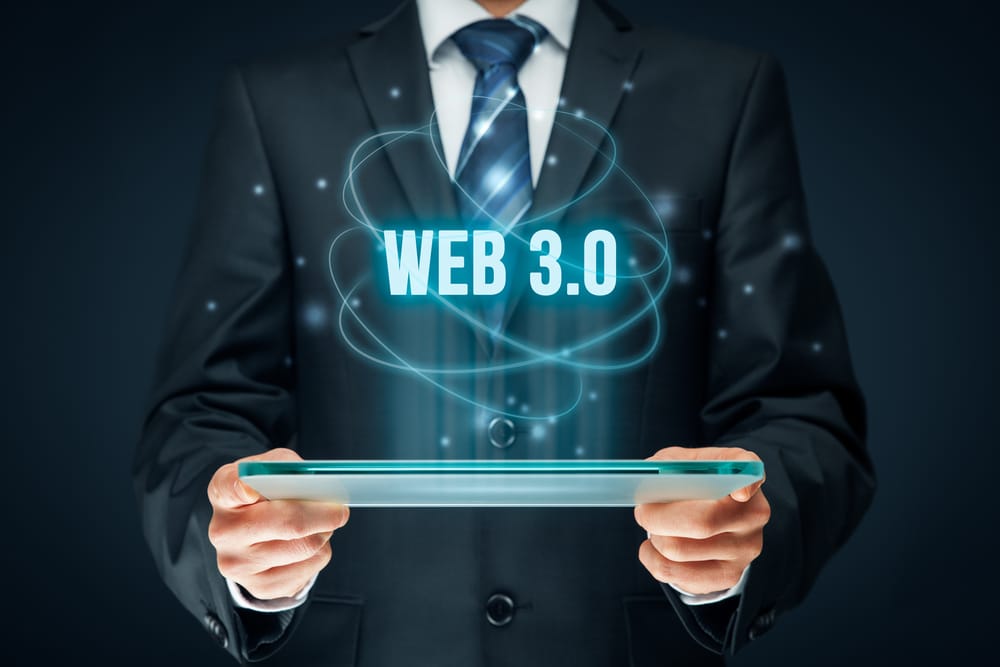
Cybersecurity is not a one-stop-shop
Since the start of the pandemic, the way business is conducted has changed permanently, with many workforces continuing to work remotely as restrictions have eased. As companies relax and rules have eased, life is expected to return to a form of 'new normal.' But, the issues around cybersecurity are here to stay, and the gas pedal must not be eased -- especially with the increased risks associated with continued remote working.
If anything, security should be more reinforced now than ever before to ensure all aspects of a business are secure. But this isn’t the case.

How can developers get going quickly with managed Kubernetes?
Software development has been changing in recent years, continuous deployment and rapid delivery of new versions of applications are now increasingly the norm over slow and massive version changes. This change has led to new ways of working, with applications more commonly deployed using containers, on virtual hosts.
In March 2016, the Cloud Native Computing Foundation (CNCF) completed its first survey on container adoption and found only 23 percent of respondents making use of containers in a production environment. Fast forward to 2021, new research from Civo that surveyed over 1,000 cloud developers found 50 percent of respondents reported that their organization utilizes containers, with 73 percent of those using containers in a production environment.

Staffing crunch forcing commercial insurance industry to embrace technology
The COVID-19 pandemic shone the spotlight on growing labor shortages throughout the U.S. economy. While most of the attention to find entry and mid-level workers has focused on retailers, restaurants, and other service industries, the reality is that the staff shortage is affecting Wall Street banks, construction, manufacturing, trucking, and more. The pandemic has exacerbated long-standing staffing issues for commercial insurance brokers and carriers and is driving more companies to look to technology to bridge the gaps.
Many common dynamics are driving the overall labor shortage. As the pandemic rose and fell, more Americans reassessed which types of jobs they wanted and at what pay. The rising acceptance of remote work, elimination of the daily commute, lack of access to childcare, desire and opportunity to start a business, and simply workers choosing to leave the workforce altogether are driving the staffing gap. Experts believe the staffing challenge is not a temporary issue but, in fact, the new normal.

Leveraging keywords in the absence of individual user tracking
It’s not often that an industry valued at over $330 billion faces an existential threat to profitability, but that’s exactly the case for digital advertising.
Scandals like Facebook and Cambridge Analytica, compounded by numerous user data leaks within Big Tech, are changing how the general public and regulators think about programmatic advertising via third-party cookies. Large regulatory bodies across the United States and abroad are clamping down on this data collection process, and industry-leading companies are following suit.

Web 3.0 is upon us -- and it's set to shake up the digital landscape
Since the arrival of Web 2.0 at the turn of the millennium, the internet has had an escalating impact on the way we go about our daily lives.
As Web 2.0 upgraded the earlier 'read/write' internet model to a medium that was altogether more interactive, we have seen social media platforms become ubiquitous. Little by little, these changes paved the way for the 'social web', with more user-generated content and information-sharing at users’ fingertips.

Should you buy a used electric car?
Electric cars are rapidly rising in popularity. Last year saw record sales in the UK for electric vehicles, with 59,945 EVs registered throughout the year. December saw EVs have a 3.8 percent split of the UK’s market share, with almost 5,500 electric vehicles registered in the last month of the year. In December 2016, this market share was a lowly 1.7 percent. The rise of new electric vehicle purchases comes in the run-up to the government’s future ban on new petrol and diesel cars in 2030.
While the benefits of electric cars are well documented, especially their no emissions, should the public look into purchasing used electric vehicles if they’re in the market for a new car?

Security experts predict a global AI-related cyber attack before year-end
As artificial intelligence technologies become more complex and better integrated with new services and products, executives worldwide are concerned about cyber security vulnerabilities. While AI is a strong tool for security, security experts also predict that malicious actors will utilize artificial intelligence to unleash a global cyber incident in the near future.
Today, unauthorized users can get easy access to AI-powered systems to create sophisticated cyber threats. For example, AI chatbots have emerged as a novel doorway to cyber attackers, and the Emotet Trojan malware is hyped as an AI-based cyber threat prototype directed at the financial services sector.

Assessing the viability of first-party data
In the wake of expanding regulations surrounding the use of consumer data for unprecedented purposes, the digital advertising industry is in for a massive overhaul. Google has announced the removal of third-party cookies and, although they have pushed the date of obsolescence back to 2023, companies are now forced to reckon with a future devoid of third-party data collection. Big Tech is looking to lead the rest of the industry in the development of innovative alternatives.
Unsurprisingly, Google has been at the front of these efforts thus far. The technology giant controls the largest browser, adtech, and search engine products in the industry, a powerful trio that leaves them perfectly positioned to navigate the digital advertising industry through uncharted territory. In addition to removing third-party cookies from their Chrome browser, Google is also fostering the development of responsible adtech in their Privacy Sandbox.

White House Cyber Summit: Why top tech cyber pledges aren't enough
The Biden administration might have called on high profile figures to improve cybersecurity, but the reality is it's down to all businesses to tighten up their IT security measures.
The recent White House Cyber Summit with high profile leaders of some of the world’s biggest tech, energy, and financial services companies was a sign that the Biden administration is doubling down on its effort to prevent cyber attacks.

Curbing pandemic burnout: 3 steps you can take to support overwhelmed security teams
We’re a year and a half into the COVID-19 pandemic, and burnout is hitting employees hard. Recently, Okta CEO Todd McKinnon used an all-hands meeting with employees to underline the importance of taking vacation. In April, LinkedIn announced it was giving the entire company a full week off to unplug, recharge and help curb burnout.
For security teams, burnout isn’t a new phenomenon. Given the need to always be on and ready, cybersecurity professionals already face high levels of stress, and the pandemic has added to increasing and alarming burnout rates. On the heels of the Exchange, Kaseya, and SolarWinds attacks, it’s no surprise that cybersecurity teams are overworked and exceptionally stressed -- we’re under a lot of pressure.

3 tips to drive eCommerce customer engagement
In the hopes of adapting to the unprecedented digitalization era that’s impacted businesses worldwide, you’ve created your eCommerce site to continue selling to your ideal shopper. In an effort to overcome the pandemic’s aftermath, you stretch time and resources to help market your site and reach more customers. In doing so, you’re quite certain that you’ll make your money back in no time and quickly grow your business to beat pre-covid sales numbers.
You’re not alone; with over 24 million eCommerce sites worldwide as of 2021, competition is fierce, so making the right decisions and the right investments can give you the competitive edge you seek.

Brands must deliver personalization, even in a cookie-less future
Apple recently changed how the company handles consumer data and this singular move will transform how we market products in the future. Apple gave each user greater control over who tracks their data, how it can be shared, and where that information is used. Similarly, consumer data privacy legislation changes are happening all over the world.
Data collection has been synonymous with the modern consumer experience and the way brands interact with their customers. But new privacy initiatives are bringing about a new age of digital marketing strategy. Further protection of consumer data will make it more difficult for companies to understand the desires of their customer base, at least in comparison to the third-party data collection practices that are so common today. But this could actually be a good thing.

What have we learned from the last six months? Trust no one
How many people do you trust with your credit card information? Or your social security number? For most people, the answer is zero (unless you’re married, in which case the answer might still be zero). What many don’t realize is that there are far more damaging security risks than a stolen credit card number. Namely, your internet browser. We don’t often fully appreciate how much our browsers know about us. We use them for our email, shopping, sensitive company data, and yet we leave our browsers more vulnerable than the wallets in our pocket. The truth is a compromised browser might have you wishing you’d just lost your wallet.
Even though we’re always looking out for pickpockets, hackers may well be just as ubiquitous. Following the post-COVID digital boom, the last six months have seen a sharp rise in cyber attacks taking advantage of the security gap that comes with shifting entire enterprises to a remote environment. Companies scrambled to introduce short-term fixes like scaling existing VPNs to connect employees to a central network, but the cost and complexity meant that this approach simply wasn’t going to work to support long-term remote operations. In fact, many companies struggled to expand their efforts to implement VPNs as a remote security measure that could support today’s mobile workforce, and as a result, it is likely that this outdated technology will be abandoned altogether in the near future.

Why investing in customer education is imperative to your business
Despite advances in software and excitement about what products and services can do today, implementation often remains a barrier. Companies are hesitant to spend money on something that requires a significant time investment to figure out, and leaders want to ensure that new software purchases don’t sit on the shelf because employees lack the knowledge to fully leverage their capabilities.
If software vendors hope to remain competitive in today’s SaaS-based world, they must be prepared to address customers’ adoption issues and fears. If a service is not being utilized for whatever reason, organizations won’t have to look far to replace it. Sales and customer retention increasingly depend upon delivering comprehensive product education. This has become a new business imperative, sparking an evolution in how training is deployed.

Why every government should have a cybersecurity minister
The world has witnessed the worst kind of cyberattacks that have threatened our personal privacy, stolen private information, and cost billions in lost business and productivity. The past five years have seen increased cyber attacks from home hackers, and with the pandemic, the risk has only increased alongside remote working. The risk of cyberattacks calls for the necessity of establishing proper safety measures, such as by naming a cybersecurity minister for governments to protect the people and organizations.
The only way to secure the internet is for all governments to take a serious approach to cybersecurity. That means establishing a cybersecurity minister in each government to oversee cybersecurity practices in their own country. This is the only way for governments to be confident that every country is up to date on cybersecurity practices.

